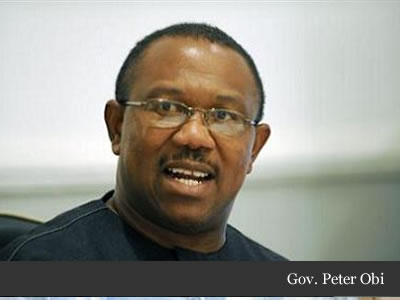The Anambra government has proscribed the activities of some youth organisations and other groups whose acts were becoming inimical to the development, peace and stability of the state.
Among the organisations are the Mpiawa-azu, Igbo youth organisation, Ogbaru youth organisation and all the local government areas youth organisations in the state.
Gov. Peter Obi, who announced the proscription in Awka on Friday in a radio and television broadcast, also warned those indulging in fraudulent practices on land and property to desist from such or risk imprisonment.
The governor said that the order was in line with his powers under section 98(2) of the 1991 Criminal Code and laws of the state.
“Government notes that the unbridled rascality of these deviant groups, who operate under one name or the other, have had the undesirable effect of disrupting the activities of genuine investors who wish to invest in the state.
“The law will henceforth descend heavily on any person willfully damaging, destroying, pulling down or removing any beacon or structure on any land belonging to another person or any person.
“Any one harassing, obstructing or assaulting any worker in a construction site with the intent to compel the worker or owner of the land to pay illegal fees will be dealt with.”
Obi further explained that the new law on land and property prohibits any person from selling land not belonging to him or selling the same parcel of land to two or more persons.
According to him, the law also prohibits any person demanding or collecting any fee not approved by law from any person developing or improving an already existing property in the state.
“The legal implication of this order is that it is now criminal offence for any person to belong to, associate with, manage or assist in the management of any of the concerned groups or organisations.”
Obi reminded the affected groups that the penalties for such offences ranged from four to 10 years imprisonment or appropriate fine.
He said that all community-based youth organisations must be registered with, supervised, controlled and subjected to the town union and traditional rulers of that community who must take responsibility for their activities and conduct.
The governor stated that enforcement



